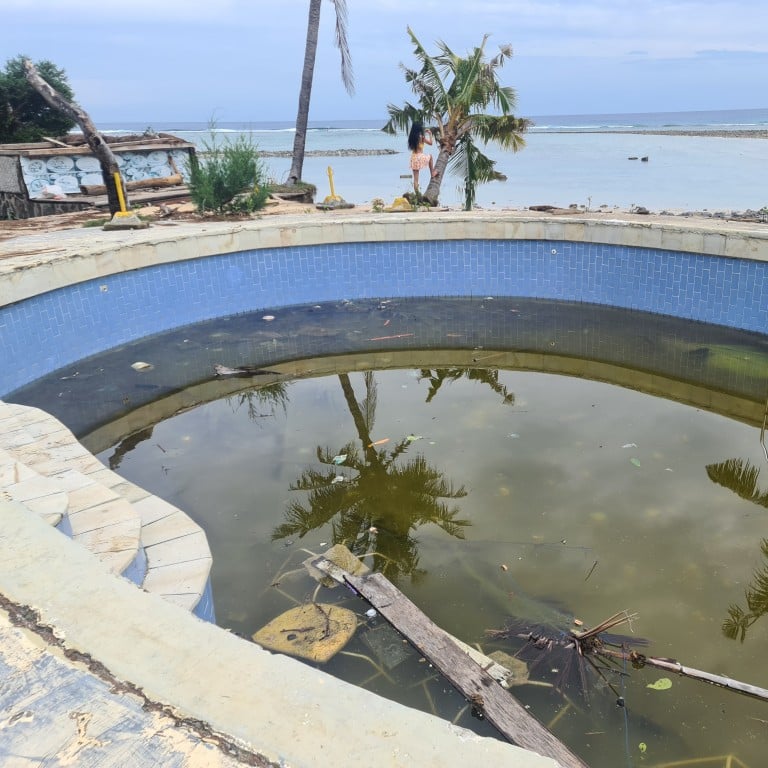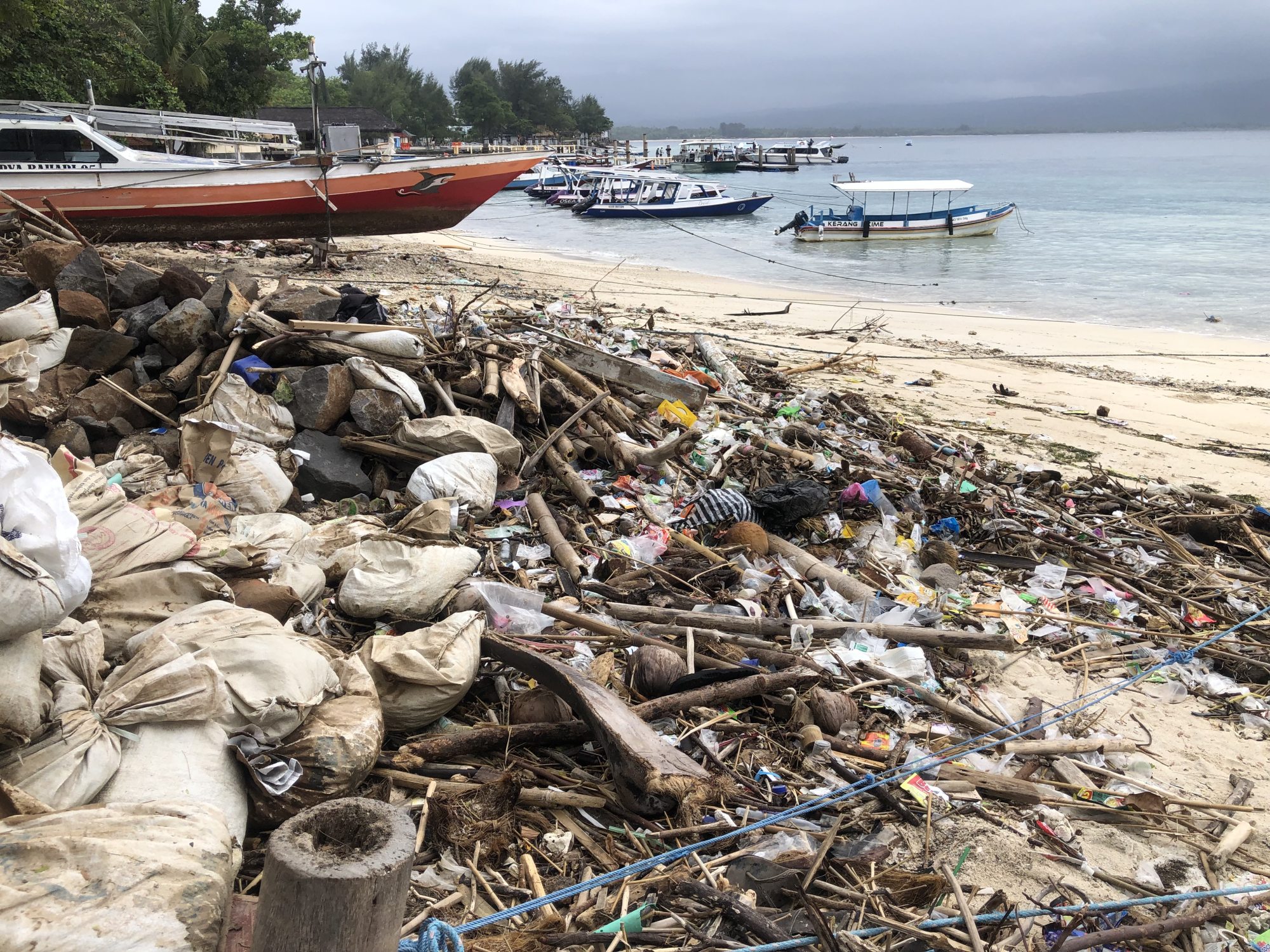
Pummelled Indonesian resort island between Bali and Lombok has more misery piled on its tourism industry
- Gili Air saw large sections of its ring road fall into the sea and its beach left covered in rubbish after a tropical cyclone swept through on Christmas Day
- Compounding matters is the off-putting sight of dozens of rundown villas and small hotels that were abandoned during the pandemic
Gili Air – a popular resort island in the Lombok Strait, between the Indonesian islands of Lombok and Bali – was in bad shape before Christmas, and that was before Tropical Cyclone Ellie swept through.
On Christmas Day, Indonesia’s Disaster Mitigation Agency reported that five cities and districts in West Nusa Tenggara province, which contains Gili Air and Lombok, had been affected by adverse weather the previous day, before Cyclone Ellie crossed the Timor Strait and made landfall in Western Australia.
Flooding, a tornado, pummelling rains and strong winds damaged over 220 houses and toppled thousands of trees in Lombok.
Tidal waves also hit Mataram, Lombok’s capital, but the most serious damage was caused on Gili Air, where large sections of its ring road were battered by tidal waves and fell into the sea, and the island’s beach was left covered in plastic rubbish and construction debris.

On the east coast of the 15 square kilometre (6 square mile) island, waves also washed away hundreds of metres of sea wall and footpaths, leaving only a perilously thin strip of soil between the ocean and a newly built restaurant and bar.
“There were already parts of the [ring] road missing before the storm because it was not built properly,” says James Waller, the British owner of the Begadang hotel. “But since the storm it’s much worse.”
Waller’s was the only hotel and restaurant on the island that traded continuously during the pandemic.
‘Most dangerous wonder of the world’ and more things tourists don’t get told
“Compared to what the rest of the world was going through, I couldn’t imagine being anywhere else during the pandemic,” Waller says.
“We had such a great community, there were no social pockets, from a social point of view it was incredible. We even had people coming here from Bali to get away from all of that.”
But now, ongoing extreme weather has caused the cancellation of the barges that normally ferry garbage from Gili Air to landfill sites on Lombok.

Instead, rubbish is going uncollected or being piled up on the beaches along with marine debris that made landfall during the storm.
“If the weather is good, twice a day they take the rubbish to Lombok,” says Daniel Budiwanti, a travel agent at Gili Line, which sells tickets on glass-bottom sightseeing boats that have also been grounded because of bad weather.
“This is not good for tourism. Many people are complaining.”


Compounding matters is the off-putting sight of dozens of villas and small hotels that were abandoned during the pandemic, their once-sparkling beachfront swimming pools now filled with sludge and buzzing with mosquitoes.
And many of those hotels that have reopened since Indonesia opened its borders again in early 2022 are in urgent need of repair.
“Two years of people not maintaining their properties has been devastating. Worse than a tsunami,” says the manager of a small hotel, who speaks on condition of anonymity.
“The owner [of my hotel] had to go back to Spain because he became bankrupt during the pandemic and he asked me to help activate it again. I have fixed many things but after the storm, the roofs are all leaking and people are cancelling their stays.”
